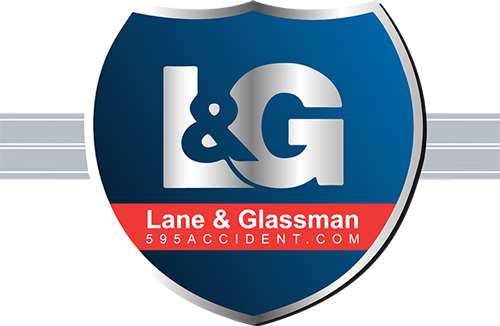All motorists who drive vehicles in Florida are expected to know and follow the Florida driving laws. These laws are in place to help reduce the chances of motor vehicle collisions, injuries, and fatalities. Unfortunately, however, many people engage in negligent driving behaviors and cause collisions each year in the state. If you are involved in a crash in Florida, here are some of the Florida driving laws you should know from the attorneys at Lane & Glassman.
Under § 316.027, Fla. Stat. (2021), you must do several things if you are involved in a collision resulting in injuries or fatalities, including stopping and remaining at the accident scene, immediately calling 911, and providing first aid until help arrives. You have this duty when you are involved in a car crash on public or private property.
Per § 316.0271, Fla. Stat. (2021), any vehicle owner or lessee can request to participate in the yellow dot critical motorist medical information program. This program allows motorists to affix a yellow decal to alert responding emergency personnel that the motorist has critical medical needs so that they can be properly addressed.
Under § 316.061, Fla. Stat. (2021), people who are involved in crashes causing damage to property must stop at the scene and exchange information with the other motorist. Failing to stop and provide your information is a second-degree misdemeanor.
Per § 316.062, Fla. Stat. (2021), you must stop and remain at the scene of an accident and provide your information to the other driver. If anyone is injured, you must also immediately call the police and provide aid until help arrives. The duty to report also extends to any property damage-only crash involving damages worth $500 or more.
Under § 316.063, Fla. Stat. (2021), if you crash into an unattended property or an unattended vehicle and cannot locate the owner, you must leave your name, insurance information, and contact information in a conspicuous place for the owner to find it. Failing to do so is a second-degree misdemeanor.
Per § 316.064, Fla. Stat. (2021), when a driver is rendered physically incapable by a car accident to report it, any other occupant must report the accident on the driver’s behalf. Otherwise, the report must be made within 10 days of the accident.
Under § 316.065, Fla. Stat. (2021), a driver involved in a collision resulting in injuries, fatalities, or property damage worth $500 or more must immediately report the accident to the police. A violation of this law is a noncriminal traffic violation.
Per § 316.066, Fla. Stat. (2021), police officers must submit written long-form accident reports to the state within 10 days of investigating a crash that resulted in the death or injury of a person or that caused enough damage to require a wrecker to remove the vehicle. Written reports of crashes.
Under § 316.067, Fla. Stat. (2021), providing false information in written, oral, or electronic accident reports is a second-degree misdemeanor.
Per § 316.068, Fla. Stat. (2021), the Department of Motor Vehicles provides crash report forms to police departments, and the police officers must complete their reports on the required form and include all of the required information about the parties and vehicles involved.
Under § 316.069, Fla. Stat. (2021), the Department of Motor Vehicles must analyze and tabulate all accident reports and publish statistical data each year.
Per § 316.070, Fla. Stat. (2021), police officers who respond to the scene of a crash must instruct the involved drivers to exchange the following information:
If you were injured in a car accident, understanding the Florida driving laws is important. It is also critical for you to retain an experienced FLorida car accident attorney for help with recovering the compensation to which you should be entitled. Trying to handle a car accident claim without help could result in you recovering much less than you deserve or potentially not recovering any compensation. We have years of experience helping our clients navigate car accident claims and can help you to understand your rights. We can also help you to ensure you comply with the laws and avoid making mistakes that could harm your claim. Contact us today for a free consultation at 954.874.3631.
